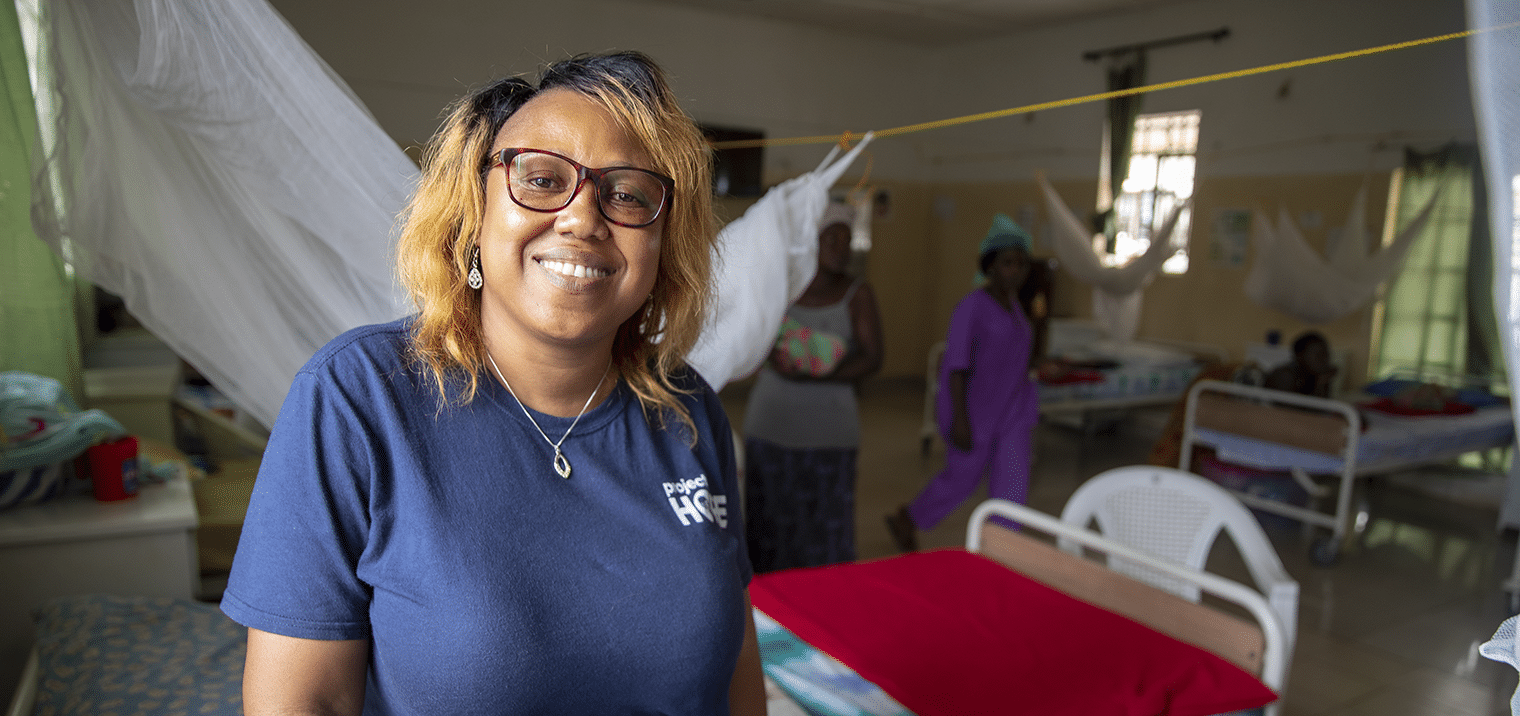
Health Worker Spotlight: Reaching Mothers and Babies in Sierra Leone
Banneh Daramy, a Project HOPE newborn consultant, dedicates her energy and expertise to improving health for fellow Sierra Leoneans — saving lives in a country with some of the world’s highest maternal and infant mortality rates.
The greatest improvements in community health are often a direct reflection of the health workers on the frontlines and behind the scenes. In Sierra Leone, Banneh Daramy is one of the women we have to thank for the impact and progress of our work to save the lives of vulnerable women and newborns.
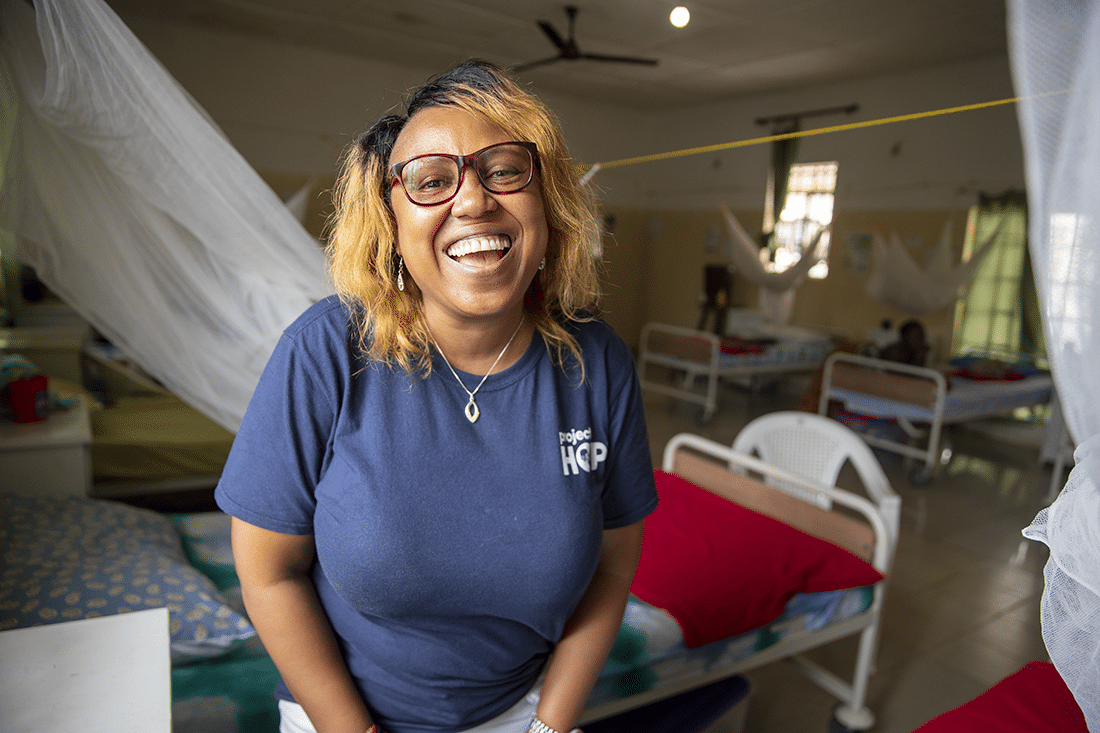
Banneh is a state-certified midwife. Two years ago, she became a newborn consultant for Project HOPE. As part of her role, she oversees our Kangaroo Mother Care (KMC) program, promoting the adoption of a low-cost lifesaving technique for premature and low birthweight babies that involves wrapping the baby skin-to-skin with its mother for warmth.
She also oversees to the facilitation of our mother care support groups, formed in villages to reach mothers with the knowledge they need to manage their health and care for their newborns. Each of the 21 group consists of about 20 mothers and is led by a lead mother who is first chosen by the community and then trained by Banneh. Mothers meet every week to learn best practices in pre- and post-natal care and hygiene. Lessons are reinforced through songs with instructional lyrics — an effective method considering most of these women never learned to read or write — and mothers all sing and dance to them. Banneh provides ongoing support to lead mothers as questions and concerns arise along the way, and also makes home visits for mothers with newborns, especially mothers who were taught to use the KMC approach for their small, pre-term babies.
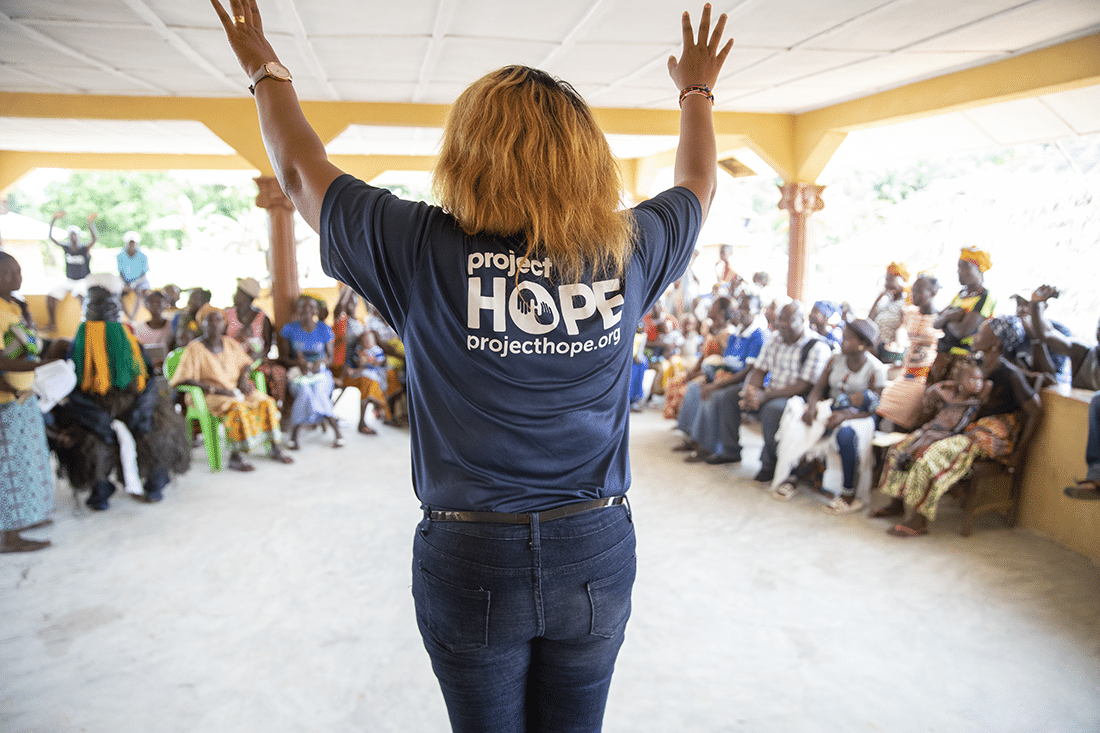
But it’d be a disservice to describe Banneh just by her job responsibilities — she is so much more than that. Banneh infuses infectious positive energy and life into everything she does, shows limitless compassion to everyone she meets. When we visited Sierra Leone this summer, we saw this first hand. Everywhere we went, Banneh delivered hope and was embraced with enthusiasm.
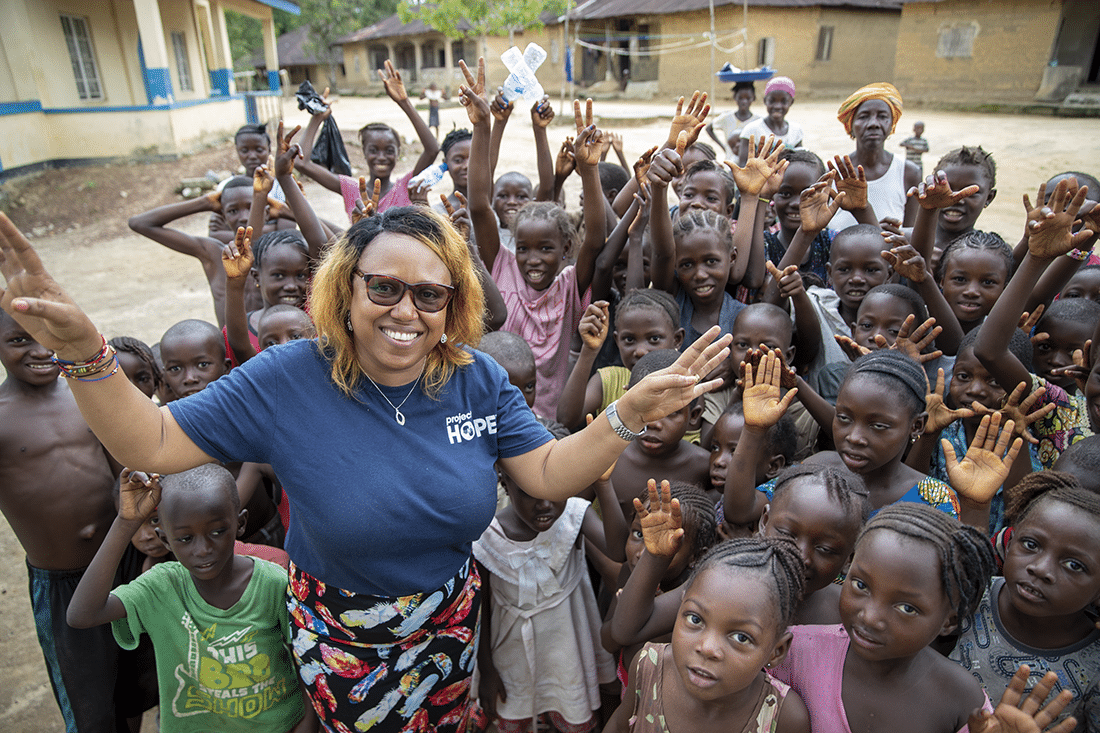
Banneh visits villages and attends mother care group meetings as often as she can — her visits are highly anticipated. Her dynamism and magnetism help women let go of any initial inhibitions or reservations; she joins in on the dancing and can often be seen coaxing more hesitant mothers to their feet. She’s helped bring lessons to life, and has in many ways become “the glue” to these support groups. For many women, these teachings are empowering, and the simultaneous celebration of motherhood and sisterhood is an uplifting relief and reprieve from the rest of the week.
“We need to make them smile. We need to make them laugh. That is what I’m doing.”
Banneh first decided she wanted to be a health worker just after graduating high school.
“I developed passion to work as health care worker to save lives in my community. After high school, I read an article which talked about training of skilled health workers to help reduce maternal and infant death Millennium Development Goals 2015 target,” she says. “Now I am grateful to be part of the leaders that are contributing to improving health outcomes and saving newborn lives. I am proud to serve as a friend and mentor to mothers for Sierra Leone.”
Banneh herself is from the Kono District, the same region of many of the villages where we work. This is her home, and these women (and other health workers), aren’t just people she works for — they’re friends and family. She’s built a strong foundation of trust with community members.
“During my visits to the communities, we have established a family relationship which is more of our work to enhance motivation in them,” she says. “Lead mothers and the mother care group members are now proud members of the Project HOPE family.”
She’s also earned the respect of village chiefs and elders, who’ve seen the positive effects of Project HOPE’s work in helping mothers raise healthier children.
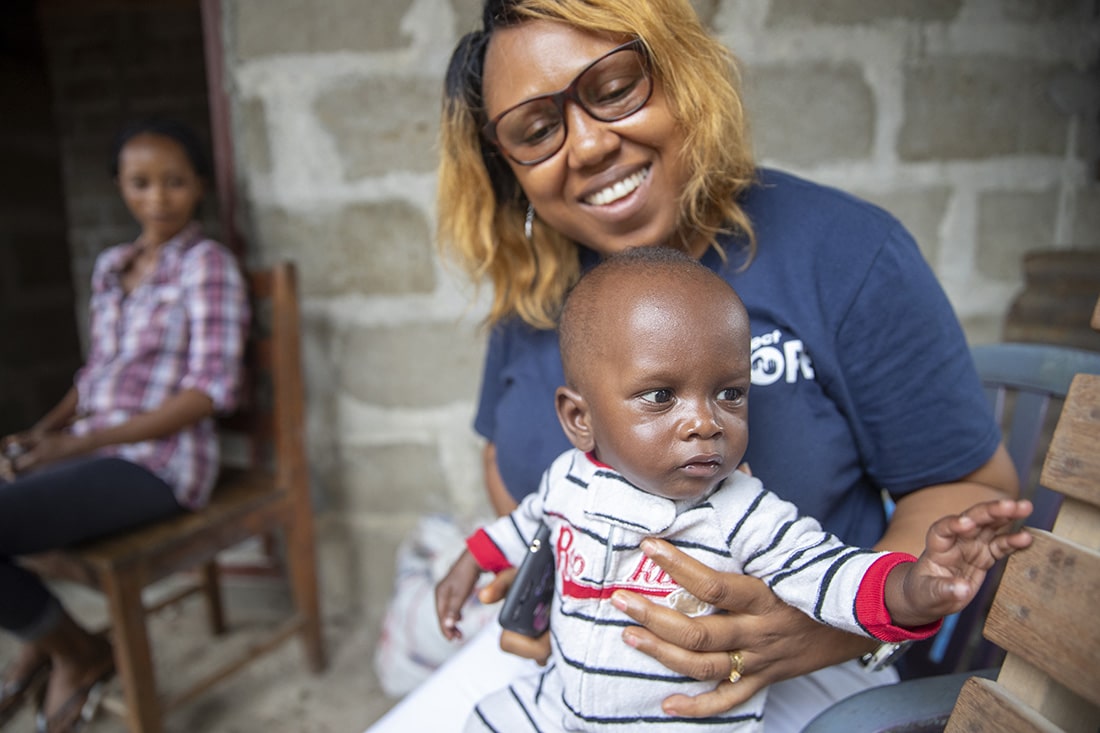
“Banneh has been essential in the development of the community mother groups and the Kangaroo Mother Care approach for the care of small and premature babies,” shares Carolyn Kruger, a former Project HOPE employee, and long-time consultant and volunteer. “She visits mothers with small babies using the KMC approach after discharge from the hospital to help them transition to home care, and helps encourage involvement of the father and the rest of the family in the care of the newborn. This follow up in the community and family-centered approach is key to the survival of such vulnerable newborns.”
For Banneh, this is more than just a job. Building the capacity of other health workers to better deliver and care for newborns is her passion, and following up to see progress or recovery of sick babies and mothers is the most gratifying part of the work.
The most challenging part, she says, is seeing mothers in the hospital who have to leave early, against medical advice, because of inconsistent food supply. All too often, there isn’t enough food to go around, and mothers are left with no choice but to depend on their families for food or leave the hospital in order to eat.
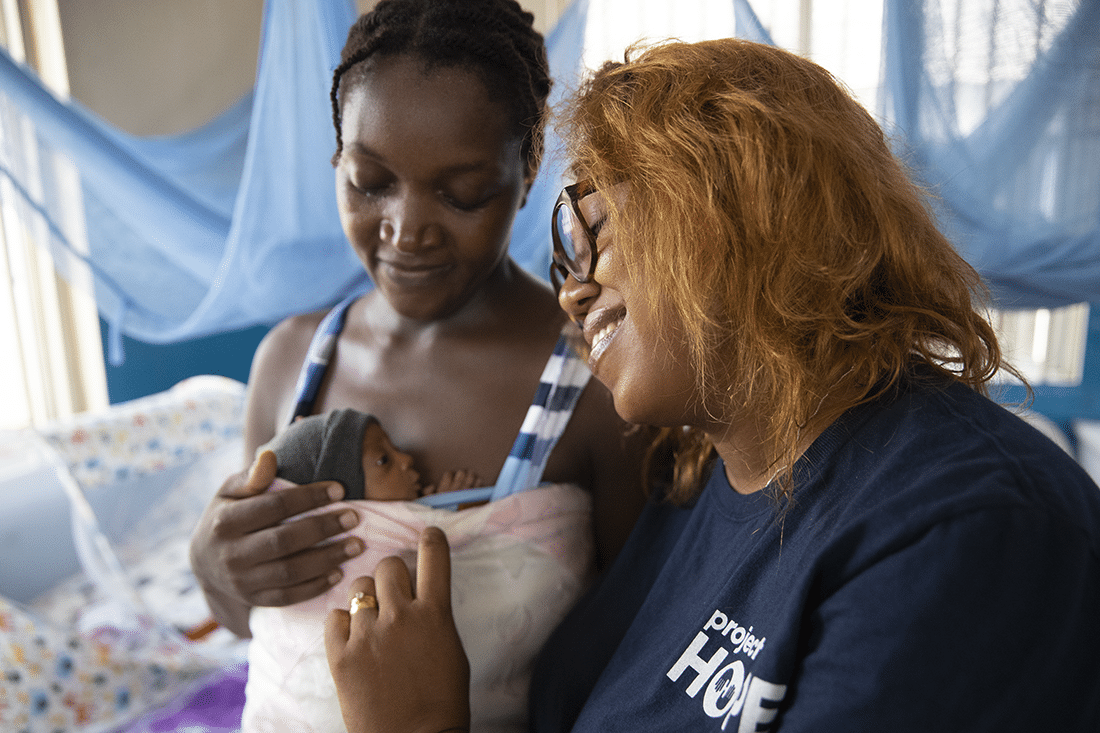
In spite of the challenges, Banneh remains optimistic and points to the national progress being made. It’s measurable: maternal and infant mortality rates, though still alarming, are slowly improving. In 2017, the under-five mortality rate dropped from 262 per 1000 live births to 111 per live births, and maternal mortality dropped to 1,360 per 100,000 live births.
“I am sure of an impactful future in the health of newborns, children and mothers of Sierra Leone; as well as the growth of a powerful network of fruitful health partners and a well-developed society.”
How you can help
Make a lifesaving gift to support our work now and for the future at projecthope.org/donate.
Are you a health-care or other professional who would like to learn more about volunteering abroad with Project HOPE? Learn more about our volunteer program and join our volunteer roster.
Stay up-to-date on this story and our lifesaving work around the world by following us on Facebook, Instagram, LinkedIn and Twitter, and help spread the word by sharing stories that move and inspire you.